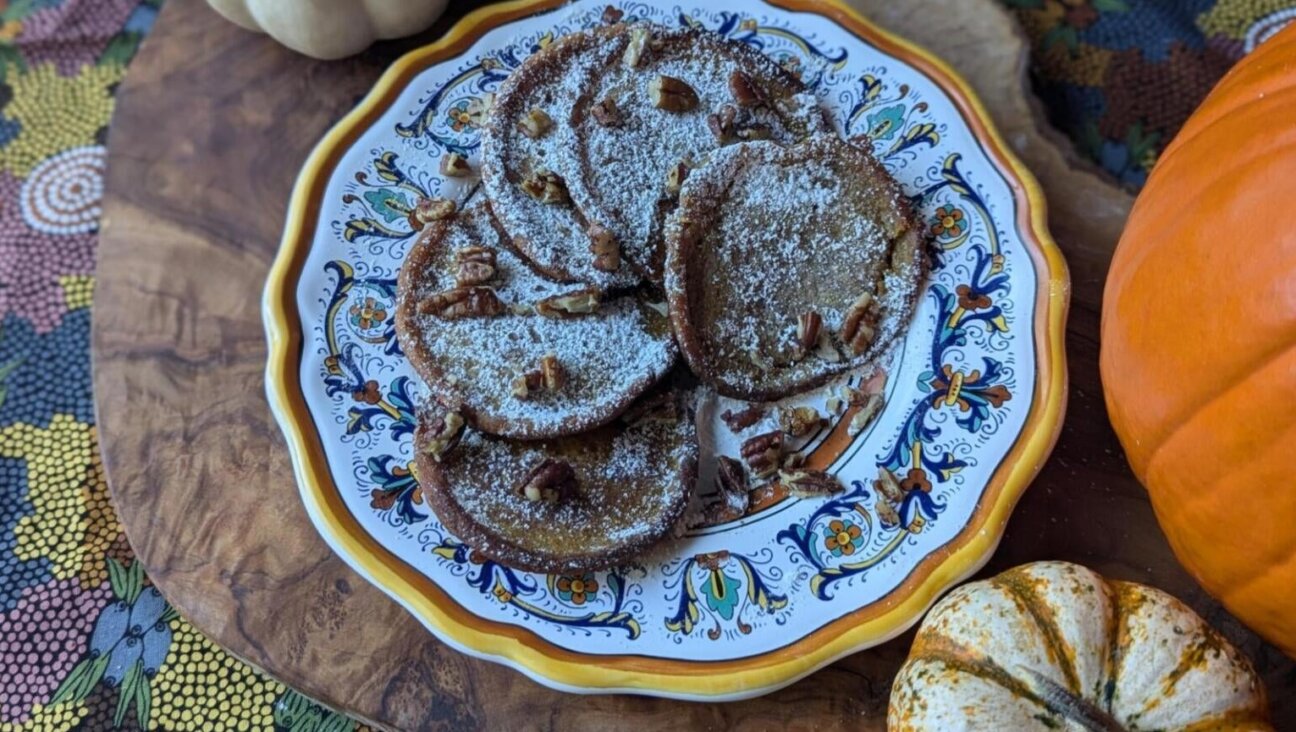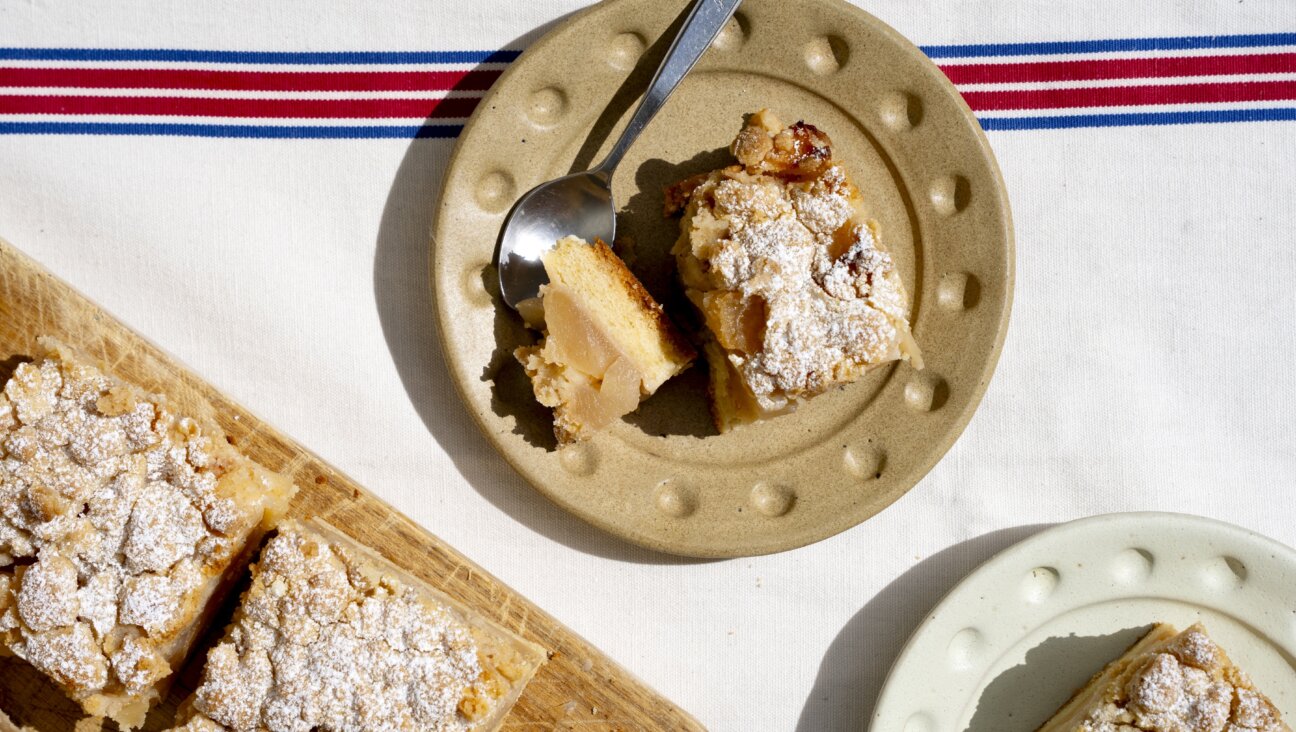How To Spend A Holiday Meal Alone (And Like It!)

Image by iStock
For some singles, there are about a hundred days of the year when they must plan a place to go for Shabbat or holidays, and who they are eating with. Sometimes, the sheer multitude of holidays necessitates eating alone. Some tolerate it. But others have learned to enjoy it.
Anita Lo, of the cookbook “Solo: A Modern Cookbook For A Party Of One,” is familiar with this struggle. She offers this sage advice for people dreading eating meals alone: “Get over it!” Lo hopes the art of cooking is not lost on a group of rapidly aging millennials, believing that “it should be part of life and part of what makes us human.” The Michelin-starred chef, who has spent her fair share of decades eating alone, told the Forward that “Eating alone is about taking care of yourself. It’s a statement. And cooking at home is like self-care. You’ve accomplished something by making this delicious meal, and you’re taking care of yourself, and nourishing yourself.”
This Thanksgiving and holiday season, these reminders couldn’t be more prescient.
Solo eating has always been a cultural phenomenon. There are whole restaurants dedicated to solo diners. There have been scientific studies dedicated to the pros and cons of solitary consumption. Not to mention there’s a whole canon of food writing dedicated to eating alone. Nigella Lawson’s written of the simple satisfaction of cooking for one, M.F.K. Fisher had her treatise On Dining Alone (“ Lucullus dined with Lucullus for a reason”) and now Anita Lo, formerly of Anissa, is reinventing her reputation as a chef for a party of one with her new cookbook “Solo.” And yes, the title’s a joke about her last name.

Image by Julie Smith
This Michelin-starred expert on solo eating believes that modern eating involves cooking as a solitary treat. Eating alone is for urban dwellers with high-powered jobs, for those who haven’t quite found their kindred spirits yet, for spinsters embracing their freedom, and for anyone and everyone. To truly know yourself, you have to have had the formative experience of eating some meals gloriously, terribly, painfully, exhilaratingly alone. And Lo is well acquainted with the experience of eating alone, after a few decades of cooking herself simple, filling, quietly-consumed meals. Here are her tips for solo eating in this age of cooking as self care.
Portion size
“Portion size is the key to knowing what you want to eat, and how much you’re going to eat of that,” says Lo, who thinks having a scale is the key to no waste. Lo, who describes herself as ‘fanatical about waste,’ used to just eyeball the pasta she was going to eat, and she invariably wound up with leftovers. Not anymore.
The freezer is your friend.
Don’t fear the freezer! “Freeze things in usable portions,” is the dictum Lo lives by. “Just have it organized so you know what’s in there.” She also recommends keeping like items together and keeping an inventory of freezer items.
Food savers
Having a food saver helps keep things for longer. Lo is partial to this system which sucks the air out of the bag, while sealing ingredients in, leaving frozen food far less susceptible to the scourge of freezer burn.
Buy small amounts
Lo advises solo eaters to shop in places where they can purchase in smaller amounts. Don’t buy a clump of rosemary when a couple of sprigs will do. Buy minimally, and cooking for one will look as intimidating. It’s best to steer clear of your local supermarket chain and head to a farmer’s market for this.
Food storage.
Lo swears by keeping ginger in a house plant. “Eventually it’ll grow,” she says. “It won’t grow that well, but it will keep it fresh in a way that your refrigerator won’t.” Herbs? If you’re too lazy to grow your own, keep yours in a sealed Ziploc bag, surrounded by dry paper towels. Red meat? Not too fond of light, so it keep wrapped how it came. Fruits and vegetables? If they belong in the fridge, a plastic bag in the crisper is the way to go.
Here’s her tried and true recipe for a comforting solitary dinner:
Duck with White Beans and Kale
Ingredients
1 duck leg, skin on, trimmed of excess fat and skin
1 duck wing
Salt and black pepper
1 tablespoon olive oil
About 1/3 cup of chopped onion
1 clove garlic, thinly sliced
½ cup of white wine
1 bay leaf
1 sprig thyme
1 cup chicken stock (or duck stock)
One 15- ounce can white beans, drained and rinsed well
1 handful of kale, washed and sliced (about 1 ounce)
Heat a medium pot on high. Season the duck pieces with salt and pepper on both sides. Add the olive oil to the pot and swirl, then add the duck, thick- skin side down. Turn heat to medium high and brown, then turn and brown the other side. Turn heat to medium and add the onions. Stir and cook until the onions are translucent, then add the garlic and stir.
Add the wine, bay leaf, and thyme and cook until the wine is reduced by 2/3, then add the chicken stock and cover. Bring to a boil, cover, and leave to simmer over medium- low heat. Check to make sure there is still liquid in the pot (if it has dried up, add a bit more) at occasional intervals for about 40– 45 minutes, or until the duck meat is soft. Add the beans and the kale and cook another 5 minutes. Season to taste with salt and pepper, and enjoy.
Excerpted from Solo by Anita Lo. Copyright © 2018 by Anita Lo. Excerpted by permission of Alfred A. Knopf, a division of Penguin Random House LLC. All rights reserved. No part of this excerpt may be reproduced or reprinted without permission in writing from the publisher.
Shira Feder is a writer. She’s at [email protected] and @shirafeder
















